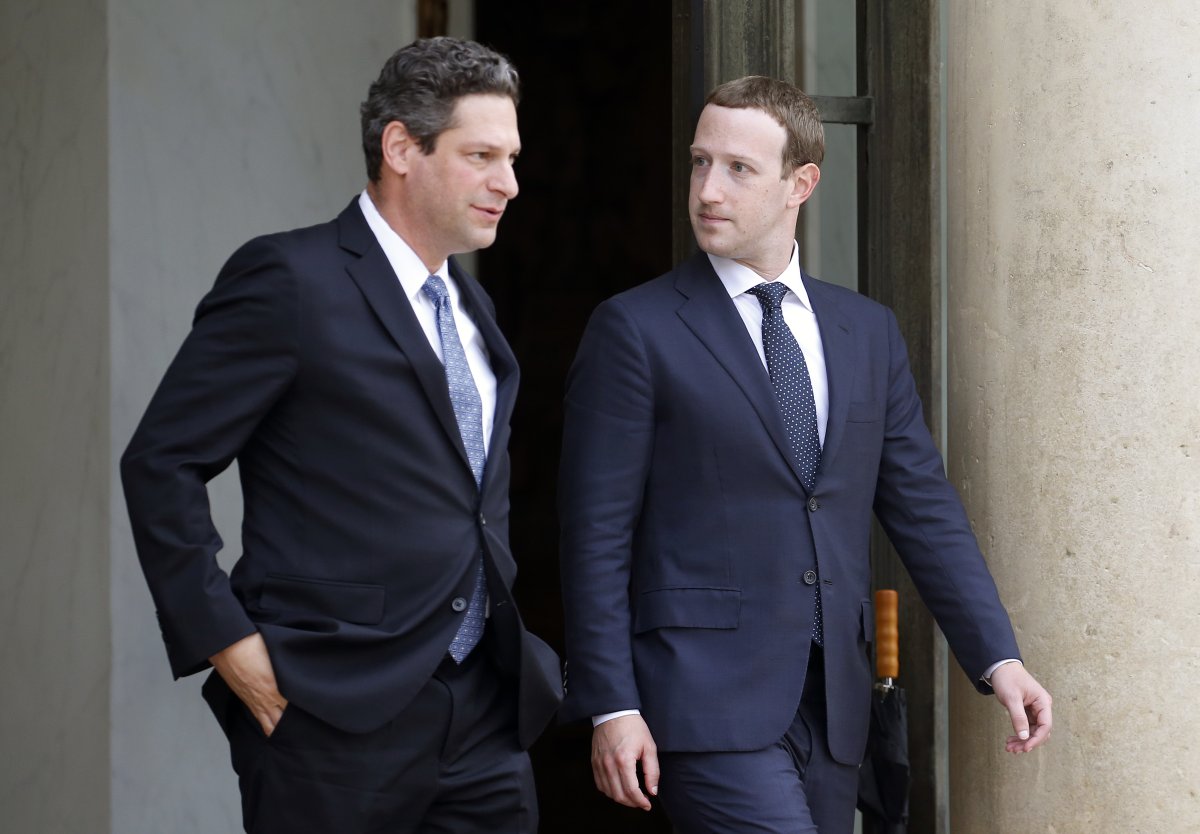
Meta’s decision to disband its fact-checking program, a cornerstone of its efforts to combat misinformation, has highlighted the growing influence of Republican Joel Kaplan, the company’s new global policy chief.
The company’s move on fact-checking, announced Tuesday, was presented by Kaplan as a step toward “free expression,” aligning with the free-speech ethos championed by X (formerly Twitter). It also signals how the company, founded by CEO Mark Zuckerberg, has bent a knee to Donald Trump.
Newsweek has reached out to Meta for comment via email.
Why It Matters
Meta joins other tech companies that appear to be adjusting policies to align with Trump’s priorities ahead of his return to the White House this month. Meta, the owner of Facebook and Instagram, is replacing its third-party fact-checking program with user-generated “community notes.” A similar system is used by X, which is owned by Elon Musk, a prominent Trump ally.
“We’ve seen this approach work on X, where they empower their community to decide when posts are potentially misleading and need more context,” said Kaplan, who orchestrated the fact-checking shift, in a Tuesday blog post.
Meta says that expert fact-checkers often bring biases and that its previous system led to excessive censorship.
What To Know
Meta introduced its fact-checking system in December 2016, after Trump’s first election and amid criticism of the spread of “fake news” following the Cambridge Analytica scandal, a data breach involving the personal information of millions of Facebook users. For years, the company worked with over 100 organizations in more than 60 languages to address misinformation.
The decision to end fact-checking comes just weeks before the inauguration of Trump, whose relationship with Meta was fraught after the company suspended his account following the U.S. Capitol riot on January 6, 2021.
Kaplan, a former deputy chief of staff under President George W. Bush, joined Meta (then Facebook) in 2011 to expand its Washington lobbying efforts. Over the years, he has cultivated deep ties with Republican leaders, emerging as a trusted adviser to Zuckerberg on politically sensitive matters.
Now Meta’s top policy executive, Kaplan was a key figure in shaping the company’s approach to content moderation during the Trump era.

Getty Images
Kaplan’s influence at Meta has long been a point of contention. During Trump’s presidency, Kaplan played a pivotal role in defending decisions that angered many of the company’s employees, including leaving Trump’s “looting and shooting” post untouched during the George Floyd protests in 2020.
Kaplan’s team framed the post as permissible under Meta’s community standards, despite internal protests that it incited violence, according to a report in Wired.
These decisions often left Kaplan at odds with Meta’s liberal-inclined workforce, many of whom accused him of catering to conservative interests. In 2018, Kaplan faced intense backlash after being photographed at Brett Kavanaugh‘s Supreme Court confirmation hearing, where he supported his longtime friend during sexual assault allegations against him.
Meta has also appointed Dana White, president and CEO of UFC and a close ally of Trump, to its board of directors—further aligning itself with Trump’s network.
Meta’s Washington Strategy Under Kaplan
Kaplan’s political instincts have made him a central figure in Meta’s leadership, helping the company navigate an increasingly divided political landscape. During Trump’s first term, Kaplan arranged private meetings between Zuckerberg and key Republican lawmakers, including Senate Minority Leader Mitch McConnell and then-House Speaker Paul Ryan, building crucial relationships for the company.
Kaplan has often focused on avoiding conservative backlash. Internal whistleblower documents revealed his efforts to protect right-wing outlets like Breitbart from penalties for misinformation, a move critics argue emboldened bad actors on the platform.

AP//David Zalubowski)
Supporters view Kaplan’s actions as a pragmatic approach to navigating political pressures, while critics see them as an attempt to align Meta with Washington’s power dynamics.
Kaplan steps into his new role at a pivotal time. With the U.S. Department of Justice pursuing antitrust cases against major tech companies, including Meta, his leadership will be key as the company faces mounting regulatory and political challenges.
What People Are Saying
Jasmine Enberg, Emarketer analyst, told The Associated Press: “Meta is repositioning the company for the incoming Trump administration. The move will elate conservatives, who’ve often criticized Meta for censoring speech, but it will spook many liberals and advertisers, showing just how far Zuckerberg is willing to go to win Trump’s approval.”
Mark Zuckerberg said in his Tuesday video statement: “Too much harmless content gets censored, too many people find themselves wrongly locked up in “Facebook jail,” and we are often too slow to respond when they do.”
Announcing the fact-checking change on Tuesday, Zuckerberg called Trump’s election “a cultural tipping point toward once again prioritizing speech.”
Linda Yaccarino, CEO of X Corp., said in a post: “Fact-checking and moderation doesn’t belong in the hands of a few select gatekeepers who can easily inject their bias into decisions. It’s a democratic process that belongs in the hands of many.”
What Happens Next
The company plans to roll out “community notes” in the U.S. over the next few months, with updates expected throughout the year.
As part of the shift, Meta will remove its fact-checking controls, stop demoting fact-checked content, and replace its full-screen warnings with a simpler label, letting users choose to view additional information.




